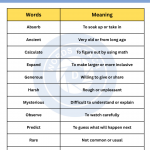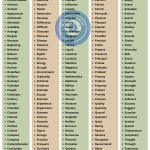Time Adverbs Used with the Present Perfect Tense
Ever wondered when to use those handy time adverbs like “just,” “already,” and “yet” with the present perfect tense? Fear not, fellow wordsmiths! This blog post delves into the world of time adverbs and their partnership with the present perfect, helping you navigate the timeline of your writing with precision.
Time Adverbs
Time adverbs act like signposts, pinpointing the timeframe of your present perfect sentences. Here’s a breakdown of some commonly used adverbs and how they influence the meaning:
Just:
Indicates an action that happened very recently.
- Example: “I have just finished writing this blog post.”
Already:
Emphasizes that something has happened before the expected time or mentioned previously.
- Example: “She has already arrived, even though we expected her later.”pen_spark
Yet:
Suggests that something hasn’t happened up to this point, but it might happen in the future.
- Example: “We haven’t finished the project yet.”
Ever:
Used to ask or talk about experiences in someone’s entire lifetime.
- Example: “Have you ever been to France?”
Never:
Indicates that something has not happened at any point in the past.
- Example: “I have never seen a kangaroo.”
Since:
Highlights the starting point of an action that continues to the present.
- Example: “She has been working here since last year.”
For:
Indicates the duration of an action that started in the past and continues to the present.
- Example: “They have been living in this house for five years.”
How long:
Asks about the duration of an action that started in the past and continues to the present.
- Example: “How long have you been studying English?”





